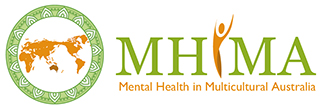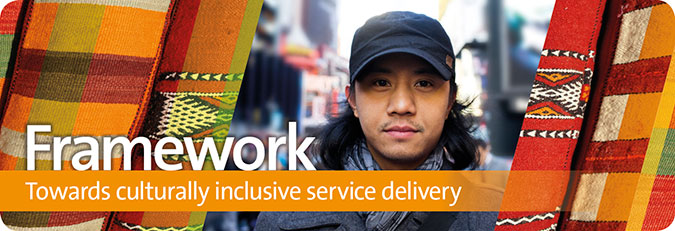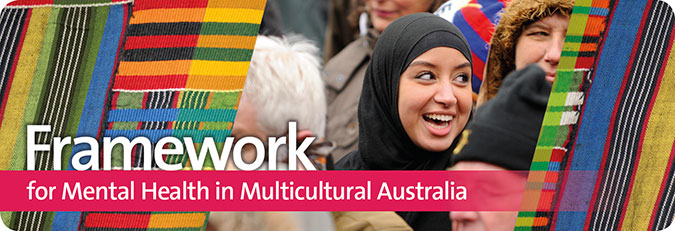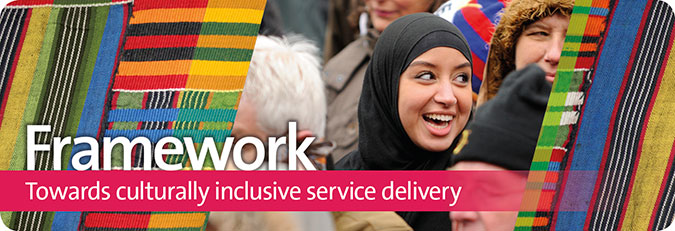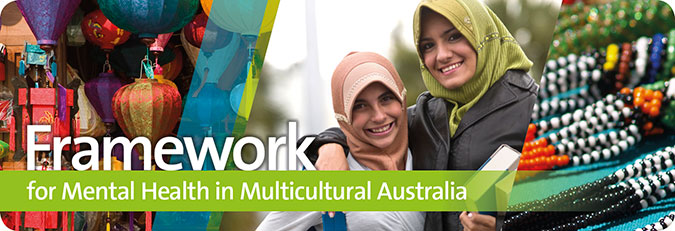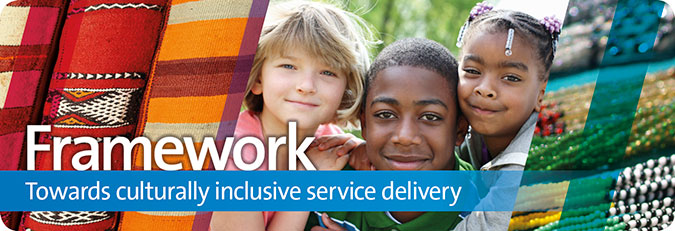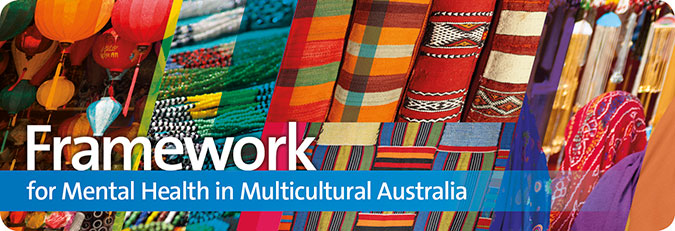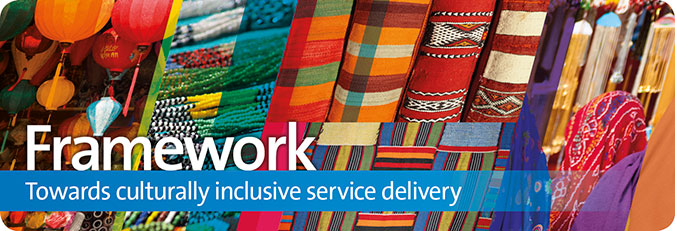INTRODUCTION - Glossary
Access: Ability of consumers or potential consumers to obtain required or available services when needed within an appropriate time.
Access and equity: The Australian Government aims to achieve fairer and more accessible government services and programs through its Access and Equity strategy, which seeks to promote fairness and responsiveness in the design, delivery, monitoring and evaluation of government services in a culturally diverse society (Department of Immigration and Border Protection 2013).
Asylum seeker: A person who has fled their own country and applied for protection as a refugee (Australian Human Rights Commission 2013).
Carer: A person of any age who provides personal care, support and assistance to another person because the other person has a disability, a medical condition, a mental illness or is frail (Mental health statement of rights and responsibilities 2012).
CALD: Culturally and linguistically diverse.
Consumer: A person who is currently using, or has previously used, a mental health service.
Culture: A shared system of values, beliefs and behaviour.
Cultural Competency/Responsiveness: A set of congruent behaviours, attitudes and polices that come together in a system, agency or those professions to work effectively in crosscultural situations. Cultural competence is much more than awareness of cultural differences, as it focuses on the capacity of the health system to improve health and wellbeing by integrating culture into the delivery of health services (Australian Government, NHMRC, 2006).
Cultural and Linguistic Diversity: Refers to the wide range of cultural groups that make up the Australian population and Australian communities. The term acknowledges that groups and individuals differ according to religion and spirituality, racial backgrounds and ethnicity as well as language. It is used to reflect intergenerational and contextual issues, not just the migrant experience (Australian Government, NHMRC, 2006).
Diversity: A broad concept that includes age, personal and corporate background, education, function and personality. Includes lifestyle, sexual orientation, ethnicity and status within the general community.
Early intervention: Interventions that target people displaying the early signs and symptoms of a mental health problem or mental disorder.
Immigrant: A person who comes to live permanently in a foreign country.
Mental health: The capacity of individuals within the groups and the environment to interact with one another in ways that promote subjective wellbeing, optimal development and use of mental abilities (cognitive, affective and relational) and achievement of individual and collective goals consistent with justice.
Mental health clinician: A mental healthcare provider who is trained as a mental health professional.
Mental health literacy: The knowledge and skills that enable people to access, understand and apply information for mental health (Canadian Alliance on Mental Illness and Mental Health, 2008).
Mental health professional: Refers to members of the workforce who are specifically trained in mental health and are expected to work to particular standards and/or meet registration requirements. In some cases, this term is used interchangeably with the term ‘mental health worker’. (National Mental Heath Workforce Strategy, 2011).
Mental health service: Specialised mental health services are those with the primary function to provide treatment, rehabilitation or community health support targeted towards people with a mental illness or psychiatric disability. These activities are delivered from a service or facility that is readily identifiable as both specialised and serving a mental health care function.
Mental health worker: A broad, generic term that encompasses people who work in mental health service delivery, regardless of role, training or qualifications (National Mental Health Workforce Strategy, 2011).
Mental illness: A clinically diagnosable disorder that significantly interferes with an individual’s cognitive, emotional or social abilities. The diagnosis of mental illness is generally made according to the classification systems of the Diagnostic and Statistical Manual of Mental Disorders (DSM) or the International Classification of Diseases (ICD).
Outcome: A measurable change in the health of an individual or group of people or population, which is attributable to interventions or services.
Prevention: Interventions that occur before the initial onset of a disorder.
Quality Improvement: Ongoing response to quality assessment data about a service in ways that improve the process by which services are provided to consumers.
Racism: Racism is any act that involves a person being treated unfairly or vilified because of their race or ethnicity (Australian Human Rights Glossary Continued… Commission 2013). Institutional racism is that which, covertly or overtly, resides in the policies, procedures, operations and culture of public or private institutions reinforcing individual prejudices and being reinforced by them in turn (Australian Government, NHMRC, 2006).
Recovery: A deeply personal, unique process of changing one’s attitudes, values, feelings, goals, skills and/or roles. It is a way of living a satisfying, hopeful and contributing life. Recovery involves the development of new meaning and purpose in one’s life as one grows beyond the catastrophic effects of psychiatric disability.
Refugee: A person who is outside their own country and is unable or unwilling to return due to a well-founded fear of being persecuted because of their: race, religion, nationality, membership of a particular social group or political opinion (Australian Human Rights Commission, 2013).
Previous Page
